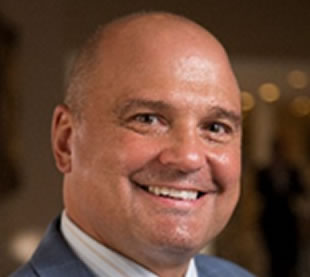
8 Money Mistakes 30-Somethings Make
This is the second installment of my two-part series on top financial mistakes to avoid in your early 30s. Earlier, I spoke of how detrimental a lack of discipline or to a written financial plan can be. In the final four mistakes below, I address the most common missteps with 401(K) investments, taxes, and insurance.
1. Not maximizing a company match on a 401 (k) Plan
A matching contribution from an employer is free money! Just about everyone should “Max the Match.” Unless you face an extraordinary situation that ties up your available salary—such as wanting to reduce credit card balances with near 20 percent interest rates—you should defer enough of your salary into your 401(K) to maximize the match offered by your employer. Consider deferring in every pay period because many employers match to each paycheck’s salary deferral, not a total amount based on your annual contribution. By contributing in every pay period, you will benefit from the matching employer contributions in every pay period. So at the start of the year, target a deferral amount that you need to make each pay period through the end of the year in order to get the full match. Your 401(K) plan administrator should be willing to help you with that calculation.
2. Missing out on the tax benefits of a Roth IRA
Subject to certain income limitations, you may qualify for a Roth IRA. In a Roth IRA, any growth in the account can be withdrawn without being taxed (subject to certain limitations); and, given the benefits of compounding, the sooner you invest money in a Roth IRA, the more likely you are to benefit from compound growth. Once you start earning more money, the IRS will disqualify you for contributing to a Roth IRA. So, if and when you fall under the IRS limits of eligibility for Roth IRA contributions, and the lack of liquidity is something your overall financial plan can handle, then a Roth IRA can make eminent sense. A Roth IRA may not be suitable for all individuals and under certain conditions, tax consequences may apply so check before you ever take a withdrawal from your account. And of course, your investment value will fluctuate and may be worth less than your initial contribution.
3. Lacking adequate disability insurance
Younger people often minimize their risk of experiencing a disability that will render them unable to earn an income. Yet when it happens, the financial impact can be devastating. There are two main ways to get disability income coverage: either purchase your own policy or gain coverage through a group plan. Group coverage is typically not as robust as a personal policy and is usually not portable when you leave that employer. And since Millennials, on average, change jobs every three-to-four years; you will likely face gaps in your disability income protection if you rely on group protection and don’t have your own policy. In the event you have coverage, most people don’t understand the specific benefits and types of coverage they have- and remember group plans were written for the employer to offer you. They rarely have the attractive features like “own occupation” protection that you get in an individual policy. So if you can qualify, consider owning your own individual long-term disability policy that offers greater benefits and can be kept in force no matter how many times you change jobs.
4. Not protecting your children in the event of a death of a parent
Children do not have to grow up without adequate financial means or even in poverty due to the death of a parent. The primary reason to purchase term life insurance is a relatively low- cost death benefit. Yet many younger earners overlook this affordable means of protecting their families. People who purchase life insurance when they’re younger (and healthier) generally can lock in lower premium rates than folks who apply when they’re older as the fees and mortality expenses charges are less. Given how affordable a 15- or 20-year level premium term life policy can be, there is no excuse for every parent who has an income to get this valuable protection. And if your term policy is convertible, you can make the contract permanent in the event you are uninsurable later in life.
Your early 30s is the perfect time to create the foundation for a successful financial future, and avoiding these mistakes will help point you in the right direction. I’ve discussed 8 financial mistakes in this series, and there are plenty more out there. The best way for you to avoid financial landmines along your path is by having a clear financial plan and by continuing to educate yourself on personal finance.
Mark Avallone, MBA, CFP®, CRPS®. www.PotomacWealth.com
Securities and Investment Advisory Services offered through H.Beck, Inc., Member FINRA/SIPC. 6600 Rockledge Drive, 6th Floor, Bethesda, MD 20817 301.468.0100. Potomac Wealth Advisors, LLC is not affiliated with H.Beck, Inc.
This material represents an assessment of the market environment at a specific point in time and is not intended to be a forecast of future events, or a guarantee of future results. This information should not be relied upon by the reader as research or investment advice regarding any funds or stocks in particular, nor should it be construed as a recommendation to purchase or sell a security. Past performance is no guarantee of future results. Investments will fluctuate and when redeemed may be worth more or less than when originally invested. Diversification and asset allocation do not guarantee against loss. They are methods used to manage risk.
* Opinions expressed are subject to change without notice and are not intended as investment advice or to predict future performance.
*The economic forecasts set forth in the presentation may not develop as predicted and there can be no guarantee that strategies promoted will be successful.
* Consult your financial professional before making any investment decision.



Engage us on Facebook
Follow us on Twitter
Tweets by @mymcmedia